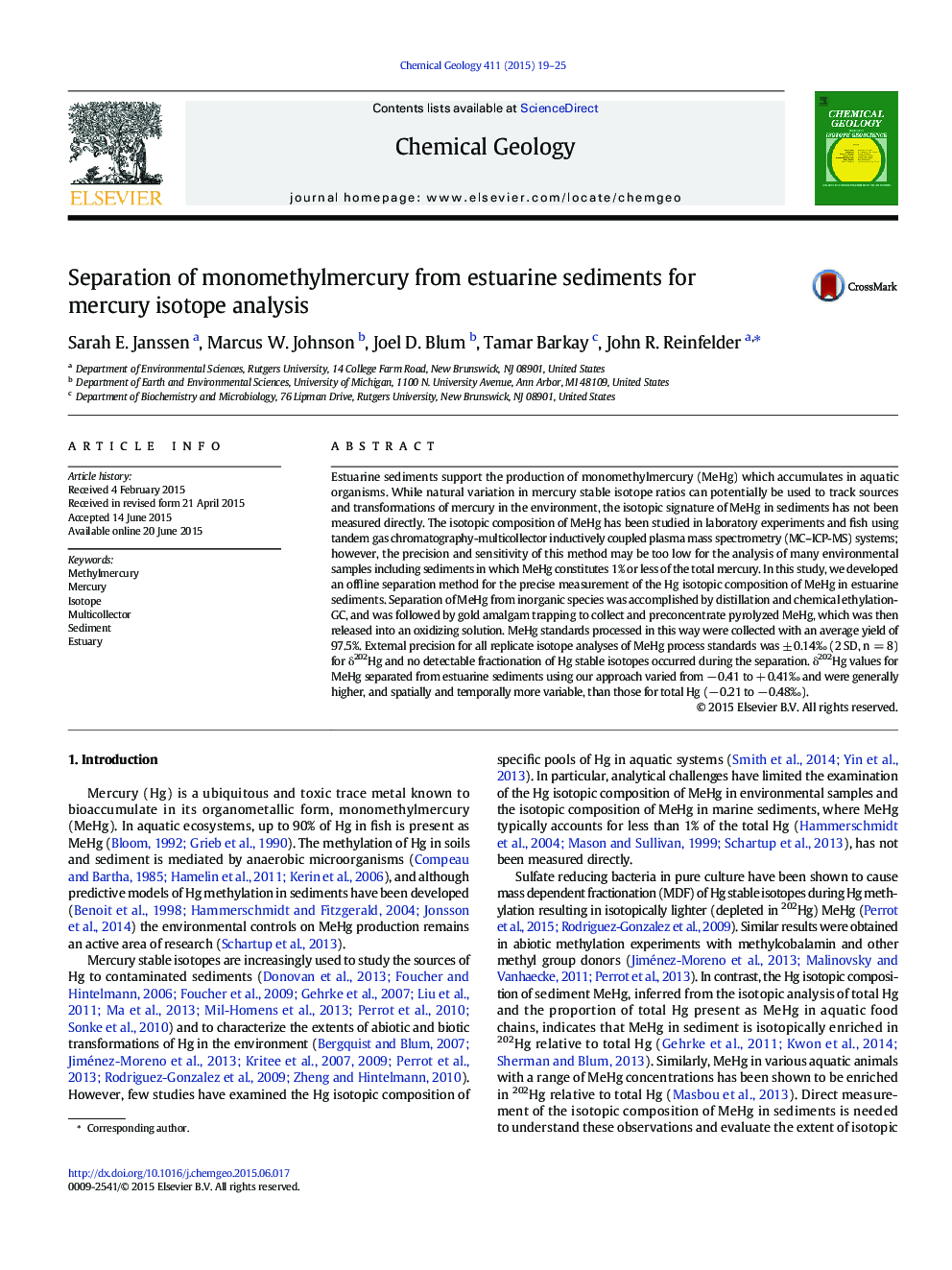| Article ID | Journal | Published Year | Pages | File Type |
|---|---|---|---|---|
| 6436309 | Chemical Geology | 2015 | 7 Pages |
â¢Hg isotopic composition of MeHg in estuarine sediments has not been measured directly.â¢A new separation method for Hg isotopic composition of MeHg was developed.â¢A precision of ± 0.14â° (2SD, n = 8) for δ202Hg of MeHg was obtained.â¢Î´202Hg values for MeHg from estuarine sediments varied from â 0.41 to + 0.41â°.
Estuarine sediments support the production of monomethylmercury (MeHg) which accumulates in aquatic organisms. While natural variation in mercury stable isotope ratios can potentially be used to track sources and transformations of mercury in the environment, the isotopic signature of MeHg in sediments has not been measured directly. The isotopic composition of MeHg has been studied in laboratory experiments and fish using tandem gas chromatography-multicollector inductively coupled plasma mass spectrometry (MC-ICP-MS) systems; however, the precision and sensitivity of this method may be too low for the analysis of many environmental samples including sediments in which MeHg constitutes 1% or less of the total mercury. In this study, we developed an offline separation method for the precise measurement of the Hg isotopic composition of MeHg in estuarine sediments. Separation of MeHg from inorganic species was accomplished by distillation and chemical ethylation-GC, and was followed by gold amalgam trapping to collect and preconcentrate pyrolyzed MeHg, which was then released into an oxidizing solution. MeHg standards processed in this way were collected with an average yield of 97.5%. External precision for all replicate isotope analyses of MeHg process standards was ± 0.14â° (2 SD, n = 8) for δ202Hg and no detectable fractionation of Hg stable isotopes occurred during the separation. δ202Hg values for MeHg separated from estuarine sediments using our approach varied from â 0.41 to + 0.41â° and were generally higher, and spatially and temporally more variable, than those for total Hg (â 0.21 to â 0.48â°).
